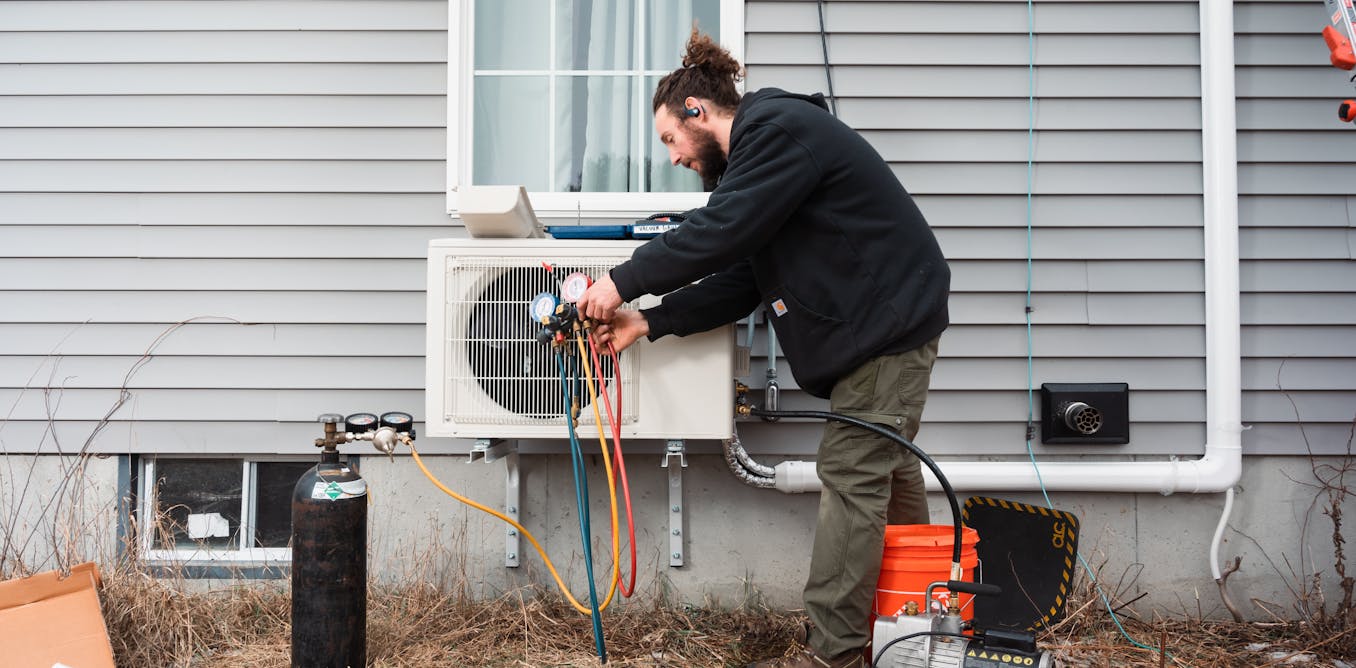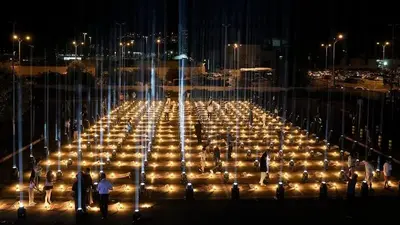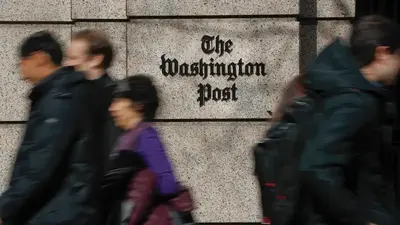Business
Barbados spearheads push on climate disaster financing
SHARM EL-SHEIKH, Egypt -- At the U.N. climate summit in Egypt, leaders of developing nations have repeatedly said it's not fair to expect them to cover the costs of rebuilding from devastating weather events in a warming world, plus invest in cleaner industry while they also pay much higher interest rates on loans than rich nations.
A plan put forward by Barbados Prime Minister Mia Mottley would overhaul the way much of development lending works. It is also giving voice to developing nations struggling under rising debt from climate damage.
“We were the ones whose blood, sweat, and tears financed the Industrial Revolution,” Mottley said in a scathing address. “Are we now to face double jeopardy by having to pay the cost as a result of those greenhouse gases from the Industrial Revolution?”
Debt has been growing in developing countries, sapping funds for education, health and clean energy. Much of the increase in debt in some Caribbean countries is related to extreme storms, Mottley said in a recent essay. The plan would make it easier for countries in the Caribbean, Latin America, Africa and Asia to get funds to beef up defenses against warming and put off debt payments when disasters strike.
Here's a look at the Barbados plan, dubbed the Bridgetown Initiative for the island nation's capital. Advocates say it could be a pathway to unlocking $1 trillion in climate financing.
THE BIG IDEA
The plan calls for special loan clauses that allow for suspending payments when a country is hit by a natural disaster or pandemic. That would immediately free up millions of dollars for governments to spend on relief and rebuilding. Barbados has been a pioneer in such clauses, last month issuing its first sovereign bond with a provision allowing for payments to creditors to be deferred for up to two years if the country experiences a “pre-defined natural disaster.”
The initiative includes a push to expand lending by international development banks such as the World Bank. The bank and its sister institution, the International Monetary Fund, were set up after the Second World War with the aim of financing reconstruction and reducing poverty. The power of rich countries such as the United States and Germany is built into the institutions. But the World Bank in particular has been criticized for being too risk averse in lending. The Barbados plan would change risk ratings, crucially lowering interest rates.
Another idea is setting up a Climate Mitigation Trust backed by $500 billion worth of Special Drawing Rights, dues that member countries pay in to the IMF that can be drawn in times of crisis. Much of it is held by countries that don't need it, said Avinash Persaud, Mottley's special envoy for climate. The trust could be used to borrow a further $500 billion from the private sector that could be lent out at low rates for investment in big climate mitigation infrastructure projects. Up to $5 trillion in private financing could be unlocked this way, the plan's architects say.
Other proposals include a levy on fossil fuel production or an international carbon border tax.
CREDITWORTHY
Mottley's plan takes aim at a central problem: Poorer nations face much steeper borrowing costs.
When most wealthy countries borrow money, they pay 1 to 4% in interest, while countries in the so-called Global South face rates of 12-14%, Mottley told reporters.
“You begin to see the disparity,” Mottley said. “The system is broken.”
Following World War II, she said, victorious Allied nations agreed to cap Germany’s debt costs so that it could rebuild. Britain refinanced its First World War debt, paying off the last of it only in 2014.
“We are simply saying in the developing world that we also need the space to be able to finance our development in the case of climate,” Mottley said. Wealthy nations account for four fifths of global greenhouse gas emissions.
Hanan Morsy, chief economist at the U.N. Economic Commission for Africa, told The Associated Press that a number of the Bridgetown Initiative’s ideas also have been advanced by African finance ministers. He pointed out another financial inequity: The green bond market which helps finance environmental projects has reached $500 billion, but only one percent reaches Africa.
RICH NATIONS
Mottley first unveiled her idea at the COP26 meeting a year ago in Glasgow, Scotland. Over the summer she and Persaud convened economists, other academics and civil society groups to work on it.
Now, she said, momentum for her ideas is gathering.
French president Emmanuel Macron was the first leader from a rich country to give his backing.
“We need a huge financial shock of concessional financing," Macron said in a speech at the opening of COP27. “We must change the rules, the rules of our major international banks, the development banks, the IMF and the World Bank,” he said. “We can’t wait for the next COP.”
To support Mottley's plan, “a group of wise minds at the highest level" has been set up, tasked with drawing up climate financing solutions by spring 2023, when the World Bank and the International Monetary Fund hold their annual meetings, Macron said.
As climate-amped disasters ratchet up the suffering, the staid international system for finance designed for an earlier age may be on the brink of change, driven by those on the front lines.
Germany, the World Bank's fourth largest shareholder, has been among those pushing for “fundamental reform," including “climate lending on better terms." Federal Reserve chief Janet Yellen said multilateral development banks need to “evolve" and move beyond their traditional work of poverty reduction to tackle climate and other complex global challenges.
———
Wanjohi Kabukuru contributed to this report.
———
Follow AP’s climate and environment coverage at https://apnews.com/hub/climate-and-environment
———
Associated Press climate and environmental coverage receives support from several private foundations. See more about AP’s climate initiative here. The AP is solely responsible for all content.
-

 Business3h ago
Business3h agoU.S. Antitrust Regulators Seek to Break Up Google, Force Sale of Chrome Browser
-

 Business3h ago
Business3h agoSuccessful White Men Alone Can’t Create America’s Economic Future
-

 Business9h ago
Business9h agoThe Rise of Silent Services
-

 Business20h ago
Business20h agoTim Latimer
-

 Business1d ago
Business1d agoCarbon offsets can help bring energy efficiency to low-income Americans − our Nashville data shows it could be a win for everyone
-

 Business1d ago
Business1d agoWorkplace diversity training programs are everywhere, but their effectiveness varies widely
-

 Business2d ago
Business2d agoFirm bosses urged to make use of Welsh language to revitalise rural economic system
-

 Business2d ago
Business2d agoDonor-advised funds are drawing a lot of assets besides cash – taking a bigger bite out of tax revenue than other kinds of charitable giving



























